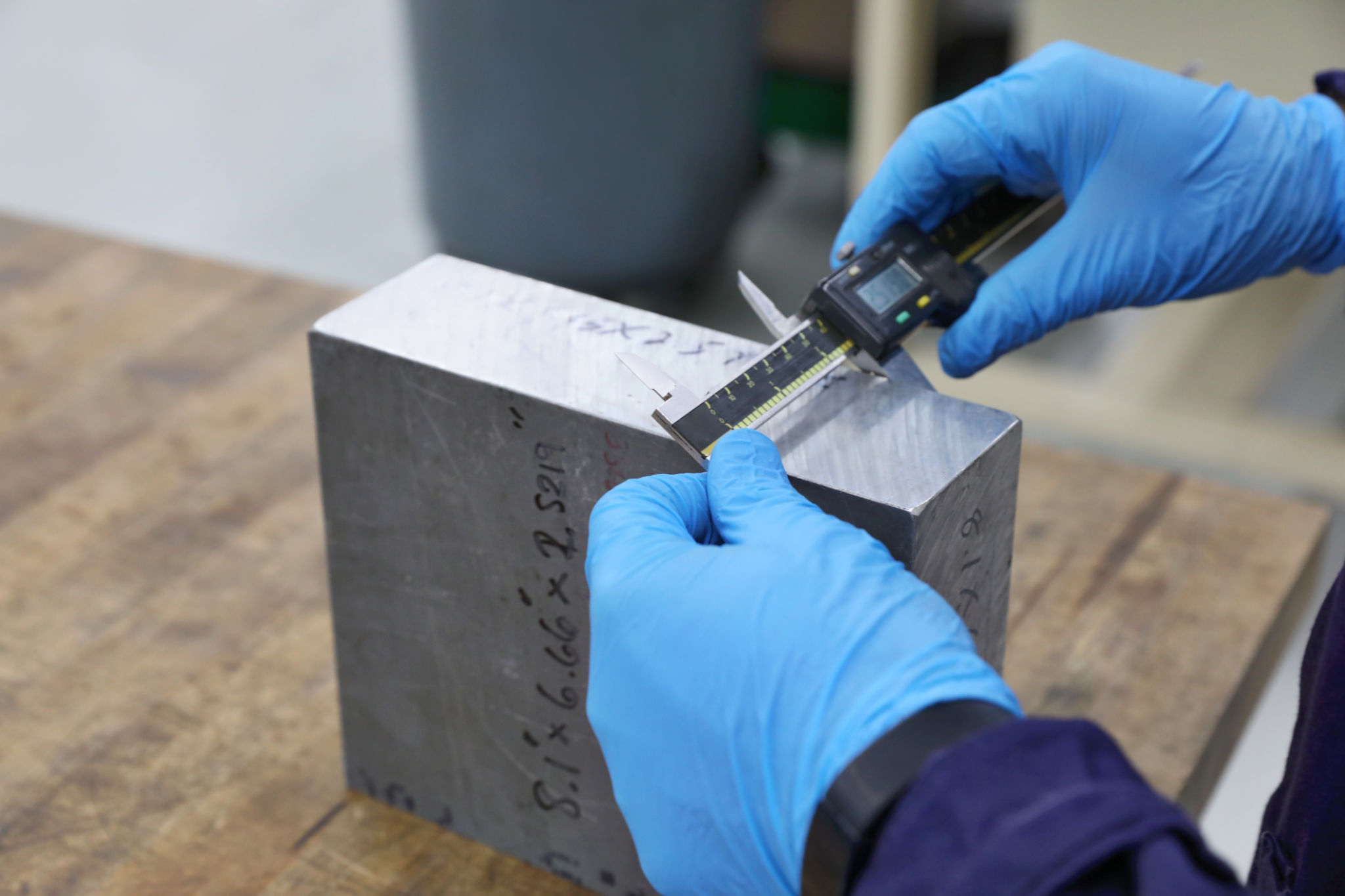In today’s world, many industries rely on measuring devices. The accuracy of these devices is important. For example, the goal line technology used in Football requires calibration before every game. And I don’t need to tell you why accuracy is important when it comes to that.
In these industries, understanding calibration, verification, and validation is key. These terms are often mixed up, but they have distinct roles. So, all three are crucial for system safety and accurate products.
To learn more about the differences between the three, continue reading this article.
Understanding the concept of Calibration
Calibration involves comparing the accuracy of an instrument’s measurements with a set standard. These measurements are also known as calibration standards. These standards help technicians improve the accuracy of an instrument for reliable measurements.
Every calibration standard used by technicians must be traceable. Thus, the formula calculation uses a recognized national standard. Such as those established by the National Measurements and Calibration Center (NMCC)/ SASO.
Is Calibration required in Saudi Arabia?
Equipment in Saudi Arabia should get calibrated if it produces inaccurate measurements. Companies use calibration programs such as Metquay, to maintain device accuracy.
Where is Calibration Applicable?
Calibrating instruments are essential for businesses in many industries. Such as medical, defense, aerospace, pharmaceutical, and automotive. They use high-quality calibration equipment to maintain accuracy. This assures the quality and safety of products.
What are the benefits of Calibration?
Calibration is crucial for companies that use instruments and measuring equipment. It ensures accurate measurements. Through regular calibration of the equipment, organizations can gain a lot of benefits.
These benefits include:
- Longer equipment life
- More safety
- Reduced Costs & Higher performance
- Better compliance
Longer equipment life
Calibrate your measuring equipment regularly. This increases their lifespan. Assume a piece of measuring equipment is being calibrated often. You may know when the device starts breaking down.
Calibrate your device regularly to catch and fix problems before they get worse. Regular calibration ensures that you stay on top of maintenance requirements.
More safety
Calibrate equipment for safety and efficiency. Accurate measurements are crucial for safe and efficient processes.
Inaccuracies can lead to errors and dangerous situations for operators. Proper calibration ensures safety for employees and equipment during delicate processes.
Reduced Costs & Higher Performance
Ensuring regular calibration of your measuring equipment can help reduce costs. Assume a company calibrates their equipment regularly and one that doesn’t. The company that regularly calibrates will prevent costly errors and equipment recalls.
While the other company could face reputation damages. And it may also face legal issues.
Offering high-quality products can increase revenue through referrals and return customers. Increasing your revenues can help boost your business’s performance.
Better compliance
Firms use measuring tools for various business processes. And each industry has laws in place to protect employees and the public at large. So, they have to ensure that their procedures and end products conform to labor laws.
Thus, calibrating your equipment regularly helps avoid compliance issues and adherence to regulations.
Standards Applicable to Calibration
Laboratories that provide calibration services should be ISO/IEC 17025 accredited. And they need to adhere to NMCC/ SASO standards that are traceable. These standards help technicians set the equipment to give precise readings.
ISO/IEC 17025:2017 is an established set of guidelines for laboratories. It demonstrates that they’re proficient in executing various tasks in the laboratory.
Labs with this accreditation prove an accrediting body has examined their laboratories. So, this certification shows that the lab is able to calibrate certain kinds of devices.
Understanding the concept of Verification
Verification ensures equipment and processes work as intended. That is, the company checks equipment with an instrument to ensure they’re working as intended. So, it is the process of checking each step to ensure it meets its operating specifications.
The process of verification doesn’t require any corrections. And the purpose is to determine error tolerance. That is, whether the equipment produces results within permissible limits.
Unlike calibration, the verification process doesn’t need corrective adjustments. This means technicians don’t have to check the results versus any NMCC standards.
Verification helps companies confirm that their instruments and systems are performing as intended.
Is Equipment Verification Needed in Saudi Arabia?
Equipment verification usually takes place after calibration. When calibrating a procedure or device accuracy is important. To ensure accuracy, you verify that it is properly calibrated.
Verification pinpoints the specific areas of a system that may need calibration.
Where is Verification applicable?
Verification and calibration are important for firms that use measuring instruments. They ensure accuracy.
Companies that sell calibration equipment also use the verification process. Verification helps find out whether the instruments are being produced correctly. So, this helps companies provide top-quality products for their clients.
What are the benefits of Verification?
Verification helps assess an instrument’s performance, ensuring proper functionality. It benefits companies in several ways.
The benefits include:
- Improved productivity
- Consistent performance
- Greater Compliance
Improved Productivity
By conducting checks on your devices after calibration, you can enhance productivity. You can use verification to ensure that you’re not producing the wrong products.
As a result, you won’t manufacture items that will need to be disposed of or recycled. Your staff would no longer have to repeatedly manufacture items. So, you can improve the efficiency of your staff by assigning them more productive tasks.
Consistent Performance
It is not mandatory for outside companies to perform verification. Many organizations perform verification to track their own internal performance.
Regular verification helps users track equipment performance and address any issues. So, companies ensure that their equipment performs consistently over long periods of time.
Greater Compliance
Verification helps you determine whether your device is in compliance with the requirements. So, this will help determine if the equipment operates within the recommended parameters. As a result, you will be able to detect any issues that might cause your equipment incompatible.
Verification helps prove that you’re in compliance with ISO/IEC 17025 requirements. So, you don’t face any legal problems.
Standard Applicable
ISO/IEC 17025:2017 provides the guidelines labs should use when measuring instruments. The standards demand that labs validate their processes. And that their equipment is verified as per technical specifications.
Every laboratory must follow the ISO 17025 standards to maintain their certification. And prove to their clients that they are able to handle a variety of jobs with ease.
Another applicable standard is ISO/IEC 17029. The standard sets out general guidelines for verification agencies. And encourages consistency and competence in verification practices.
Understanding the concept of Validation
Validation ensures that all components of a system produce desired results. It comes after calibration and verification.
Instruments are first calibrated to a standard that is known. And then validation ensures that the system is in line with its intended purpose.
Validation and verification are usually misunderstood. So, it’s crucial to understand the difference.
Verification tests whether the process is running in proper operation. While validation focuses on the equipment that produces proper output.
Is Validation needed in Saudi Arabia?
Companies have to show that a process is operating in line with the requirements. Both to the governing body and its customers.
Assume a business doesn’t perform validation. So, it cannot determine whether all the components in the system work in a coordinated manner. And whether they produce the desired end product.
Thus, validation services are needed in Saudi Arabia.
Where is Validation Applicable?
Validation applies to a range of businesses that use measuring devices. Because this method ensures that the system produces expected results. So, it’s important for companies that want to make high-quality products.
Authorities may also use validation to verify a company’s system results. Thus, if results are not compliant with SASO standards, Saudi businesses may face penalties.
What are the benefits of Verification?
Validation offers companies a variety of advantages. It is a vital component of any process that relies on measuring devices.
The most important benefits of validating are:
- Greater Safety
- Higher Customer Satisfaction
- Better Compliance
- Reduced Errors
Greater Safety
Validating your lab processes help protects against the possibility of poor results. The poor results could lead to malfunctioning equipment. Or items which don’t function properly. So, you risk causing an injury to your employees.
Validation ensures the safety of the product. It guarantees that every component in the system works correctly. And will not cause dangerous errors.
Higher Customer Satisfaction
Validation helps businesses ensure that their systems are able to meet customer expectations. So, completing validation increases the level of satisfaction with your customers.
The process is a form of quality control. So, you’ll know if the customer’s expectations are being fulfilled.
If you meet customer expectations, they see your business as trustworthy. And if you continue fulfilling their needs, they will return to you in the future.
Better Compliance
Validation helps companies conform to governmental and industry guidelines. Once you have validated your processes, they follow the standards of compliance.
Conforming to standards of compliance can assist you in improving your business’ name. And protect yourself from mandatory closures and fines.
Reduced Errors
If your system isn’t producing what you expect it is possible to see mistakes in the production line. So, validating your system ensures that your clients receive goods without defects.
This reduction of errors will also lead to increased efficiency. And increase profits for your business.
Applicable Standards
ISO standards 9001:2015 and 17025:2017 mandate validation. These standards help companies verify that their measurements are valid. And provide regulatory authorities with proof that they are consistent.
ISO standards also apply to the validation of procedures. So, it ensures that everything within an organization is functioning properly.
Like the verification process, ISO/IEC 17029 also applies to validation. And provides the requirements for validation bodies.
Why NEO performs Calibration, Verification, and Validation?
We at NEO regularly carry out calibration, verification, and validation. Equipment in our labs is being calibrated using machines made by Tunkia. as well as lab management software developed by Metquay.
All three procedures are essential in making sure that equipment is working properly. So, we perform each of them to provide our clients with the most efficient service.
They help us determine whether the calibration process was effective. And if a procedure or equipment working properly. Finally, we check whether a process produces the desired results.
We are ISO/IEC 17025 and ISO 9001 certified. So, items we calibrate don’t run into compliance issues. All three procedures ensure that we meet the standard of conformity. And also help us maintain our accreditation.
Turn to NEO for Calibration Services
We have specialists for equipment calibration at NEO. And we are also distributors for Metquay software and Tunkia’s equipment in Saudi Arabia. So, we’re able to provide a variety of services to meet your needs.
Are you looking for calibration, verification, and validation services? Or are you trying to open your own Calibration lab? Do you need lab management software or calibration equipment? Feel free to contact us.

